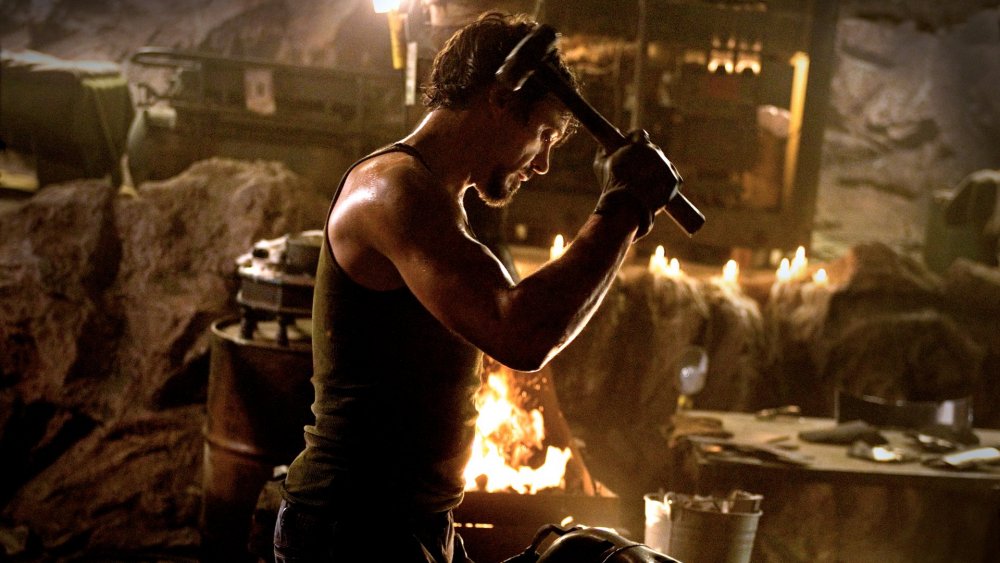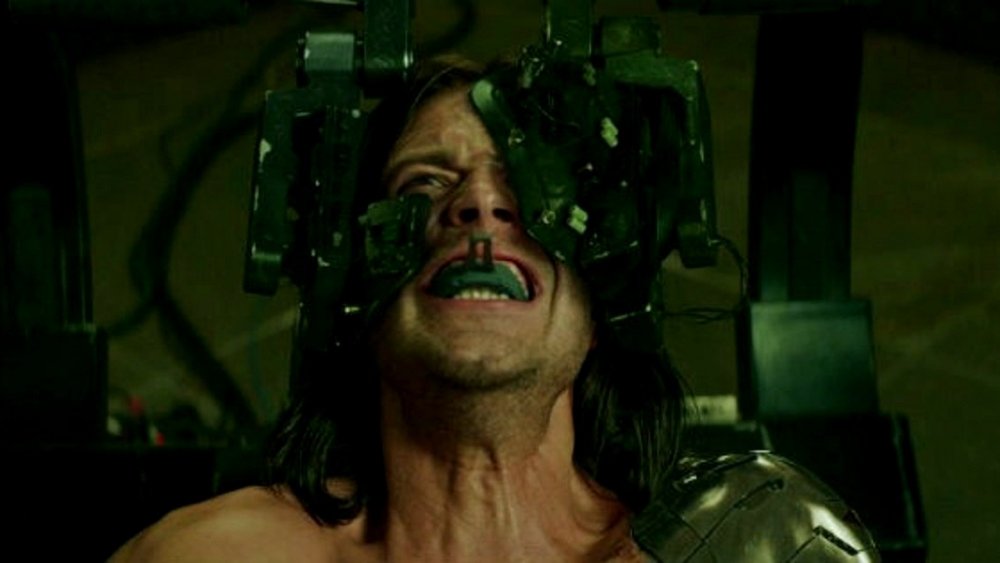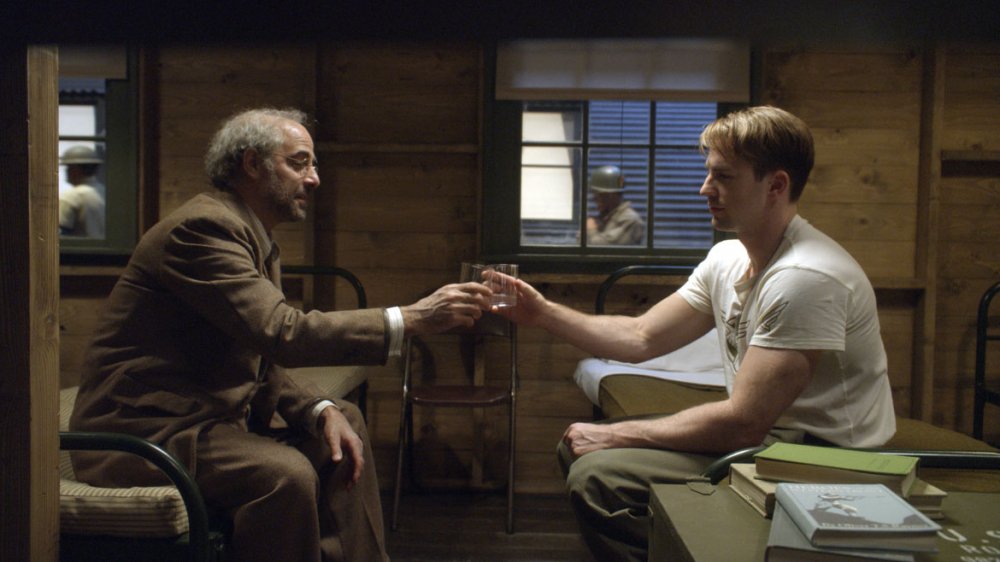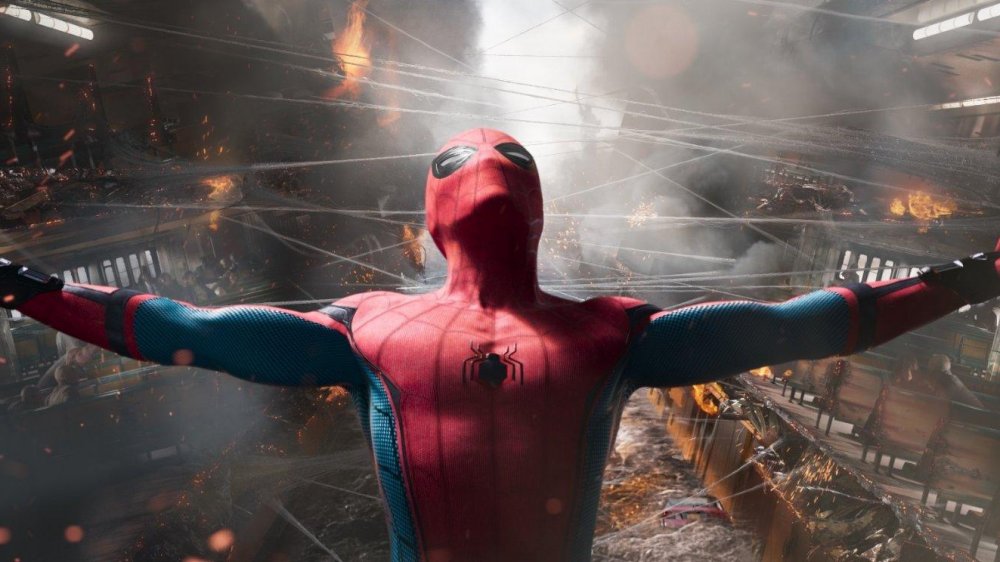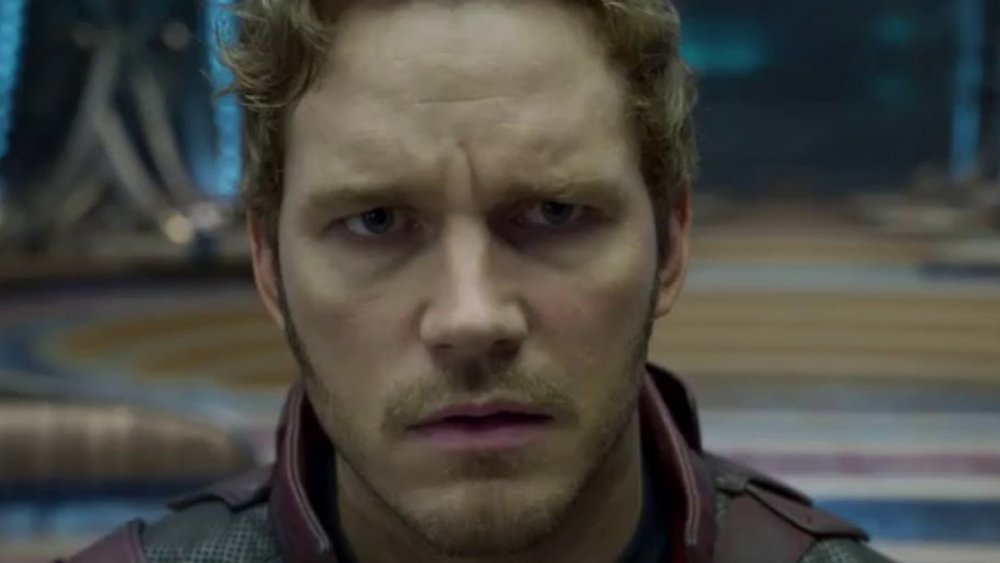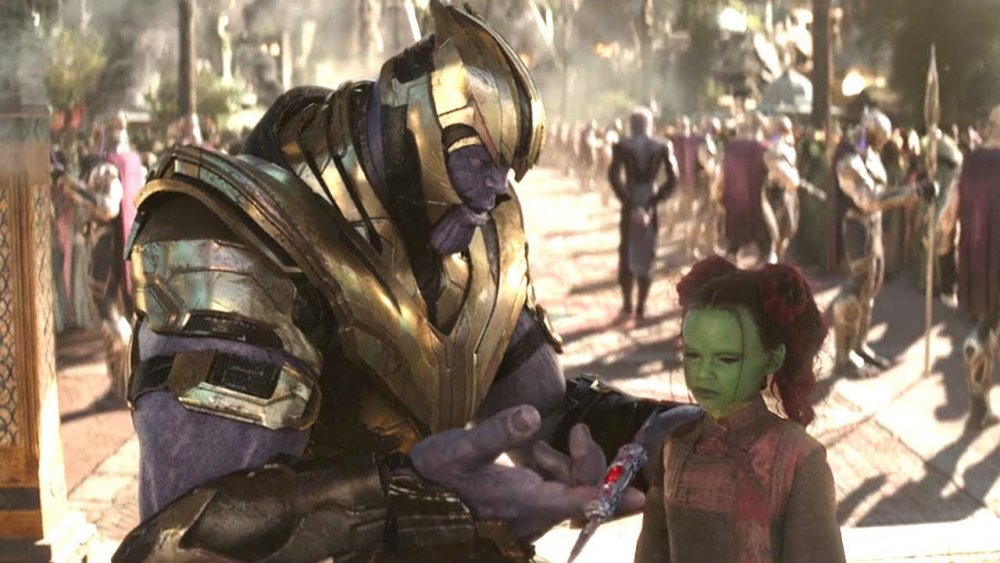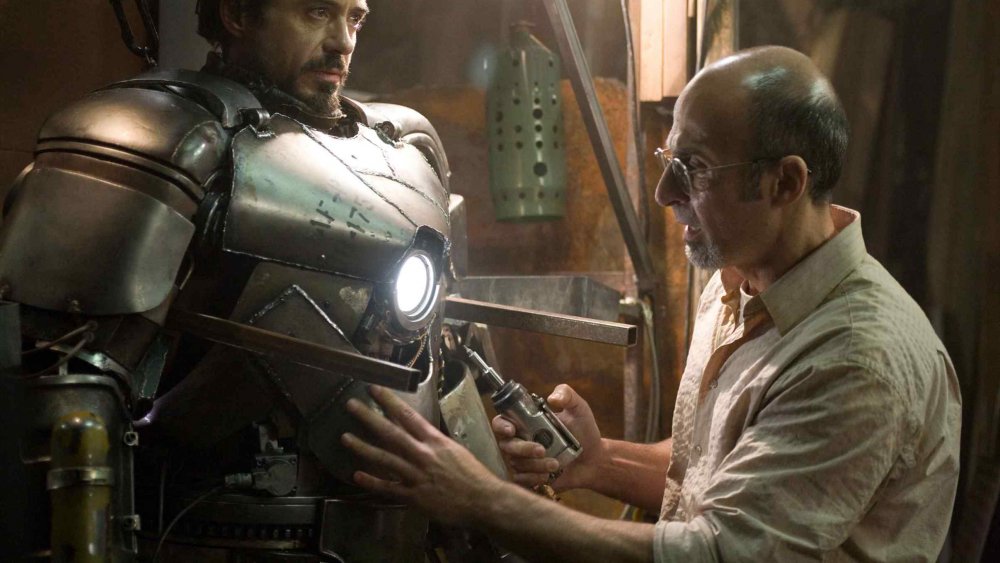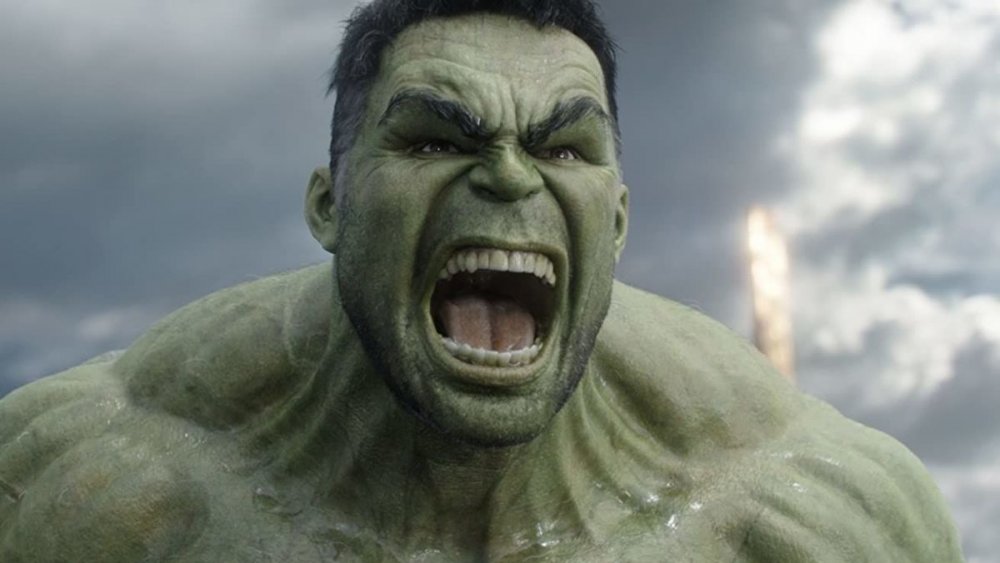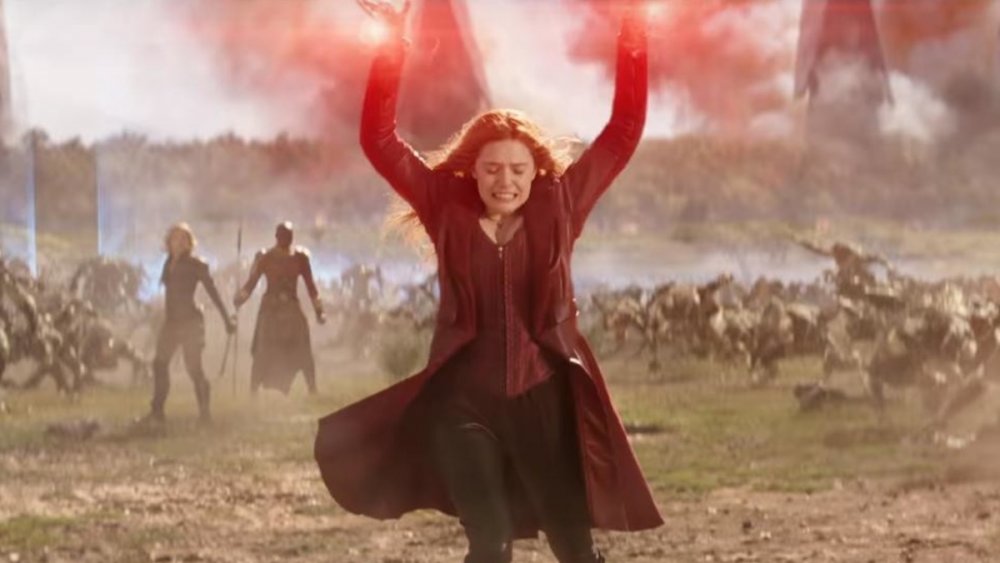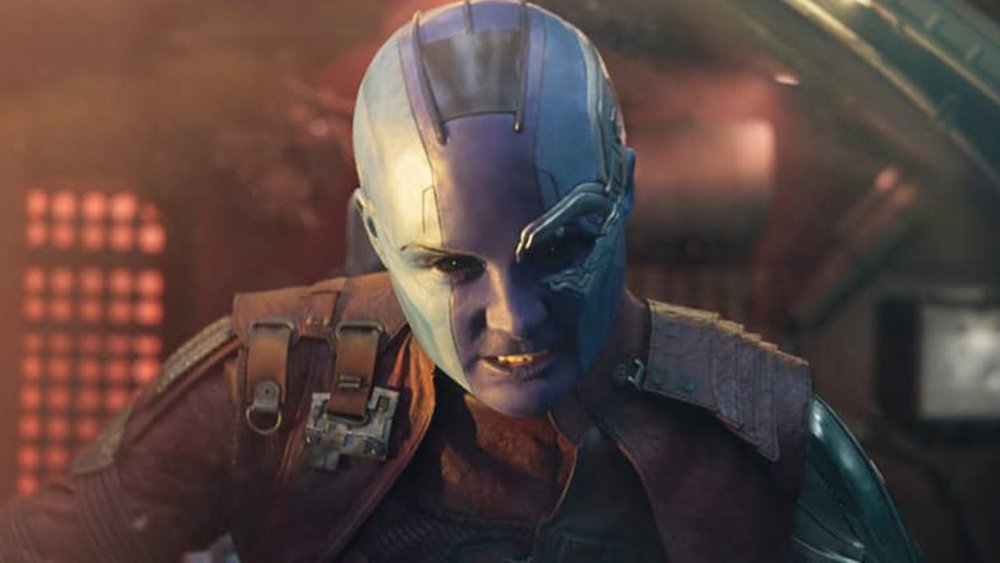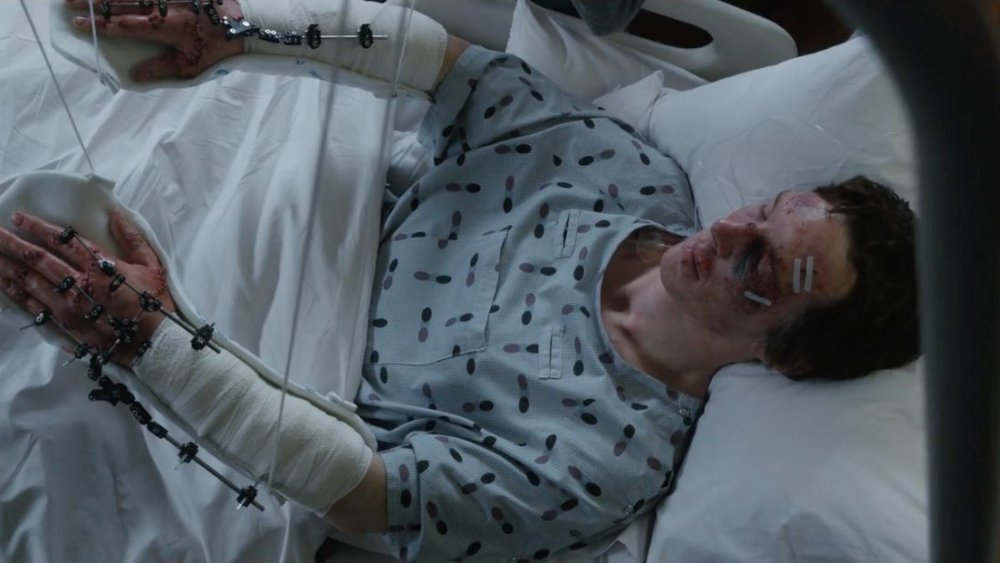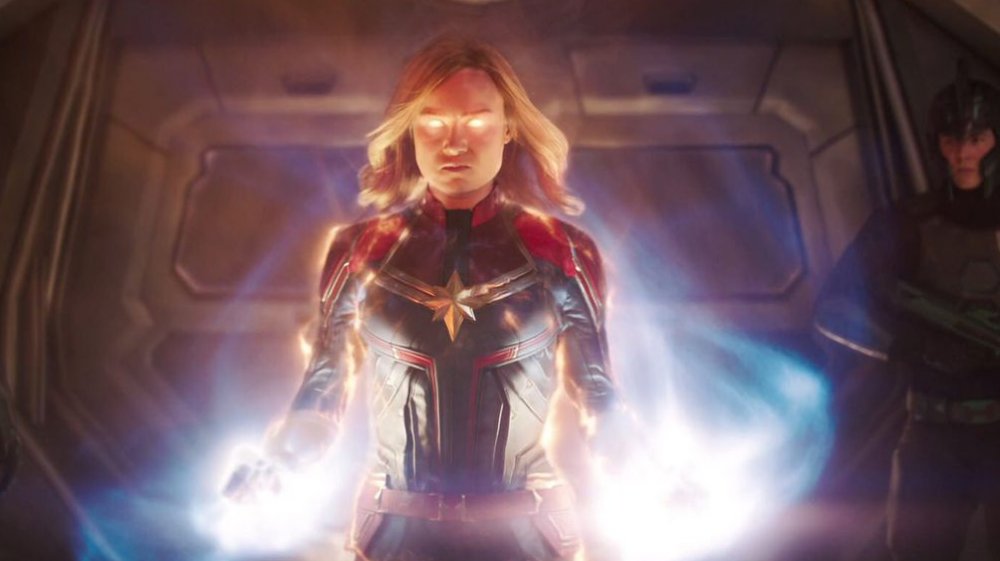Your Favorite Avengers' Tragic Backstories
The Avengers are known for stopping the bad guys and preventing the world from falling into disaster, again and again. From pushing back an alien invasion of New York City at the last minute to bringing back everyone Thanos snapped out of existence at the end of Avengers: Infinity War, the members of this super-team have plenty of experience in saving the day.
Perhaps one reason the Avengers have made a blockbuster habit of putting themselves on the line for the sake of others is that they all suffered some form of loss during an earlier part of their lives, making them more compassionate toward the suffering of others — and helping prepare them for the immense sacrifices they'd be called on to make later on. Think about it: almost every Avenger in the Marvel Cinematic Universe has lost something or someone close to them that put them on the path to becoming superheroes. From Captain America being separated from everyone he knew when he crashed a plane full of bombs into the Atlantic Ocean to Gamora being torn away from her family by a crazed warlord seeking to wipe out half of her planet, the tragedies these heroes have faced clearly shaped who they were and how they used their powers.
While each hero went through a different process for coping with the pain and suffering he or she faced, they all came out stronger and better people because of their experiences. With that in mind, here are some of the most tragic origins of your favorite Marvel superheroes.
Bucky Barnes (Winter Soldier)
Perhaps one of the most tragic origins of all the Avengers is that of Bucky Barnes. A good friend of Steve Rogers before Rogers became Captain America, Barnes was captured by HYDRA during World War II after falling off a train at a high altitude, leading Rogers and the U.S. Army to presume him dead. However, Barnes's body was recovered by HYDRA, who implanted a cybernetic arm to replace the one that he lost in the fall and conditioned him into becoming their premier assassin, the Winter Soldier. Barnes carried out many high-profile hits over the years, including the murder of both of Tony Stark's parents, until he was able to break free of his brainwashing — depicted toward the end of Captain America: The Winter Soldier.
Framed for the murder of the Wakandan king T'Chaka, Barnes was subsequently hunted down by his son T'Challa, also known as the Black Panther. His eventual escape from HYDRA and mission was part of what ultimately sparked the Avengers' civil war over the Superhuman Registration Act, which ended when Barnes and Rogers subdued Iron Man in battle after he learned that the Winter Soldier murdered both his parents. When you consider that Barnes was presumed dead, forced into being an assassin against his will, framed for crimes he didn't commit, and nearly killed for the ones he committed against his will, Bucky Barnes' deeply and perpetually tragic backstory is enough to make you wonder how he ended up fighting alongside the Avengers rather than simply staying home in the fetal position.
Steve Rogers (Captain America)
Another Avenger with a tragic origin story is Steve Rogers, a.k.a. Captain America — otherwise known as the First Avenger. Rogers desperately wanted to serve in the U.S. military during World War II, but was repeatedly rejected during the recruitment process due to his small stature and slight build. His gumption was appreciated by Doctor Abraham Erksine, who recruited him into Project Rebirth and injected him with the experimental super-soldier serum that turned Rogers into Captain America.
Immediately after the procedure was completed, however, Erksine was assassinated by a HYDRA agent. Later, while attempting to apprehend Arnim Zola, Rogers lost his best friend and fellow soldier Bucky Barnes in a fall during combat, only to be forced into doing battle with his long-lost compatriot years later after Barnes was brainwashed into becoming the Winter Soldier. Of course, every hero deals with loss, but Cap's victories have often been tainted by tragedy: after defeating the Red Skull, for example, he was forced to crash the Skull's bomb-laden ship into the Arctic Ocean, tearing himself away from Peggy Carter, the woman he loved. When Rogers finally awoke in the modern era after decades in deep freeze, he was thrust into a new period of time he knew nothing about. Given the loss of his mentor Erksine, his friend Bucky, and the selfless sacrifice of his love for Peggy, Captain America's origin story is one that has been repeatedly marred by tragedy.
Peter Parker (Spider-Man)
The tragic backstory of Peter Parker is well known. Although the death of his Uncle Ben isn't shown in the MCU, when we meet Parker, he's already living alone with his Aunt May. This also means that Parker's parents are either dead or unable to take care of him, meaning that he had suffered the loss of at least three dead and/or missing relatives before he made his debut in Captain America: Civil War. That alone would make for an awful backstory, but it only gets worse. In Spider-Man: Homecoming, Parker is forced to take down the Vulture. While Parker doesn't kill the Vulture, his arrest results in Parker's love interest Liz being forced to move out of New York City, as the Vulture is Liz's father. Later, Parker has to watch his pseudo-father figure Tony Stark die after he snaps Thanos out of existence in Avengers: Endgame. This understandably leaves a lasting emotional trauma, which he is forced to confront in Spider-Man: Far From Home. He's one of the funniest Avengers, but Parker also has one of the saddest origin stories.
Peter Quill (Star-Lord)
Among the more tragic backstories in the MCU is that of Peter Quill, a.k.a. Star-Lord. When Quill was a young boy, his mother was diagnosed with terminal cancer (which, as it turned out, was caused by Quill's father — but more on that later). Immediately after the death of his mother, Quill was abducted from Earth by the alien known as Yondu, which tore him away from the only life he'd known and thrust him into a life of crime. Quill was forced to become an intergalactic outlaw by Yondu, who threatened to eat him on multiple occasions if he didn't.
Last, and perhaps most heartbreaking, is what Quill was forced to do to his father Ego. As mentioned earlier, Ego caused the cancer in Quill's mother because — to make a long story short — his relationship with her was a distraction from his quest to take over the universe. Quill and Ego ended up doing battle with each other, which resulted in the death of Ego. With the death of his mother, his outlaw youth, and the murder of his father, Quill's backstory definitely has its fair share of tragedy — and that's all without even getting into his star-crossed love affair with Gamora.
Gamora
Where to begin with Gamora? When she was a young girl, her planet was invaded by Thanos — and her scrappy but doomed efforts to save her mother caused Thanos to spare her from being among the half of her planet that was about to be executed. Upon her adoption, Gamora was forced to become an assassin for Thanos, and while she did serve him, she always resented him for destroying her previous life. Thanos also had her repeatedly duel her "sister" Nebula, with the loser slowly becoming more and more machine. While Gamora never lost, it definitely pained her to be a part of — and to witness — this abject cruelty.
Finally, Gamora ended up being killed by Thanos in order to complete his acquisition of the Soul Stone. While MCU fans saw Gamora again in Avengers: Endgame, it was a version of her from an alternate timeline, before she met the Guardians of the Galaxy. This Gamora was surrounded by people who'd had experiences with "her" that she'd never shared, a difficult emotional burden that could be explored in Guardians of the Galaxy Vol. 3. With the loss of half her planet, her adoption by Thanos, being pitted against her adopted sister, and her death at Thanos's hands, Gamora's origin story is clearly among the most tragic of the Avengers.
Tony Stark (Iron Man)
Although Tony Stark's hardships were often mitigated to an extent by his insane wealth, he still suffered no shortage of tragedy and heartbreak. When he was a young man, Tony lost both of his parents in what was initially thought to be a car wreck but would later turn out to be one of the Winter Soldier's assassinations. This forced him to take charge of his father's company at a young age — and although he did very well for himself, achieving world renown as a manufacturer and seller of cutting-edge munitions, the loss of his parents still always shadowed him.
Years after the deaths of his parents, during an overseas demonstration of his company's missiles, Stark was attacked and struck with bits of shrapnel from an explosion, some of which nearly struck his heart. Forced to rely on a handmade ARC reactor implanted in his chest simply in order to stay alive, Stark built his first Iron Man armor as part of a plot to escape from the Ten Rings terrorist organization that nearly killed him — and although it was successful, he was unable to rescue the scientist who saved his life and helped him build the suit. After losing his parents, nearly dying in a terrorist attack, and failing to rescue his savior, Stark was able to use his tragic background in order to become a better person — and ultimately made the ultimate sacrifice, giving up his own life in order to thwart Thanos' nefarious plans once and for all.
Bruce Banner (Hulk)
Bruce Banner has his fair share of tragic chapters in his backstory. As Marvel fans know, he was a gamma radiation expert who was contracted by the U.S. military to develop a version of the super-soldier serum that turned Steve Rogers into Captain America, but an accident left Banner changed — and always at risk of turning into a green rage monster whenever he got angry.
Banner attempted to isolate himself from those he loved, as he feared what would happen if he lost control (and he was also being hunted by the military). Banner was forced to try and find a cure for his condition so he wouldn't be treated as a weapon and could live a (somewhat) normal life, but he was forced to become the Hulk when the Abomination — the gamma-infused alter ego of special-ops vet Emil Blonsky — attacked Harlem. Banner ultimately fled the United States entirely, only returning from exile at the urging of Nick Fury's Avengers Initiative. Transformed by the forces he attempted to control, hunted by the government he worked for, and prevented from living a normal life, Banner is an Avenger whose backstory has definitely been darkened by tragedy.
Wanda Maximoff (Scarlet With)
Wanda Maximoff's backstory definitely has its share of tragedy. When she and her brother Pietro were young, their parents were killed by bombs, and the sibling only survived due to another missile failing to explode. That missile had the Stark name on it, which caused the siblings to direct their grief and hatred toward Tony Stark and, by extension, the Avengers. HYDRA was able to exploit this, and convinced Wanda and Pietro to undergo experiments that would give them the power they needed to gain their revenge. Eventually, the siblings escaped from HYDRA and decided to work with Ultron due to his desire to kill Tony Stark.
The Maximoffs eventually joined the Avengers to stop Ultron — yet while they succeeded, it came at great cost, as Pietro sacrificed himself to save Clint Barton and a child. Through the loss of her parents by Stark missiles, her manipulation and subsequent experimentation by HYDRA, and the loss of her brother in the battle of Sokovia, the Scarlet Witch's origin story is clearly tragic in nature — and the tragedy only continued later, as she lost the love of her life when Thanos killed the android known as Vision by forcibly removing the Mind Stone from his body.
Nebula
Nebula's tragic origin story initially follows a path similar to Gamora's: She was taken from her world at a young age by Thanos and forced to become an assassin. From here, however, the adopted sisters' paths diverge. They were routinely forced to fight each other, with Gamora routinely the victor — and Nebula slowly carved up by Thanos and made more machine than living as punishment, leaving her understandably bitter toward Gamora. Knowing Thanos viewed Gamora as a potential successor to his throne, Nebula was driven to prove she wasn't the inferior daughter, which further drove a wedge between the sisters.
In fact, when MCU fans meet Nebula, she's hellbent on killing Gamora — a dynamic that proves stubbornly resistant to change, although Nebula slowly comes around to viewing the Avengers as her allies and standing up to Thanos in his mad quest to wipe out half of all life in the galaxy. A formidable warrior through the course of terrible circumstance, Nebula finally learned to recognize love and friendship, but she could have — and should have — had a far easier life.
Doctor Strange
Doctor Strange's origin story is steeped in misfortune. A successful neurosurgeon, Stephen Strange's bad luck begins when he gets into a car accident that renders him unable to use his hands. Following this, he sells off nearly all of his possessions in order to fund efforts to heal his wounds, an obsession that ends up pushing away his love interest, Christine Palmer. While Strange is eventually able to salvage his bond with her, he's unable to pursue a deeper relationship with Christine — or anybody else, really — after his efforts to regain the use of his hands lead him to become a Sorcerer Supreme and, eventually, the protector of the mystical sanctum based in New York City. (It's a long story.)
Strange's journey from shallow surgeon to magical protector is not without its setbacks. Aside from the emotional difficulty involved, he's almost immediately pitted against the nefarious Kaecilius, then forced to confront Dormammu, the ruler of the Dark Dimension, with the fate of the universe hanging in the balance. (No big deal, right?) Although Strange hasn't faced the level of tragedy that some of his fellow Avengers have had to cope with, he did lose his career and had to basically rebuild himself as a person, making sacrifices along the way.
Carol Danvers (Captain Marvel)
The origin of Carol Danvers, a.k.a. Captain Marvel, is filled with tragedy. While working for the U.S. Air Force, she learned that her mentor, Wendy Lawson, was actually an alien named Mar-Vell — but only after Mar-Vell's ship was shot down by another alien named Yon-Rogg, who took Danvers to his home planet and erased her memories in an effort to make her believe she was a member of his race, the Kree. After rechristening her Vers and luring her into the Kree society under these false pretenses, Yon-Rogg trained her as a Kree warrior, fighting on the front lines in their long war against the alien race known as the Skrulls.
Upon discovering Yon-Rogg's lies and suppression of her memories, Danvers turned against her captors and fought the Kree, finally learning to tap into the cosmic power she acquired when she destroyed the experimental engine that fueled her mentor's ship. Carol Danvers had to deal with the death of a friend, her own kidnapping, and years of gaslighting on her journey into the MCU, but she emerged as Captain Marvel — arguably the most powerful Avenger of them all.
